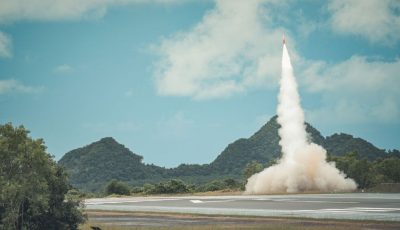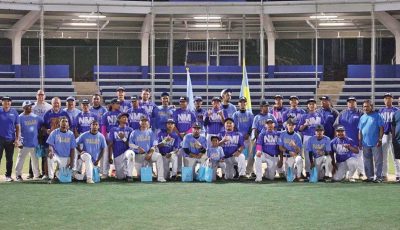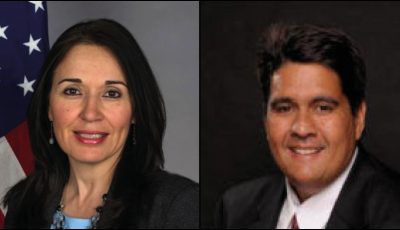Palau college sponsors climate change workshop

Group photo of workshop participants with Palau Community College president Dr. Patrick U. Tellei, PCC dean of Academic Affairs Robert Ramarui, and associate dean of Academic Affairs Marianne Tamau. (Contributed Photo)
Training was provided by Dr. Robert Richmond, director of the Kewalo Marine Lab of the University of Hawaii and president of the International Society off Reef Studies, and Dr. Ron Dunbar, professor of Earth Science at Stanford University and Senior Fellow for the Center of Ocean Solutions.
During the training at PICRC, participants were exposed to issues faced by the Pacific region due to climate change such as mass coral bleaching caused by elevated sea surface temperatures, the rise of sea level, and reduced coral reef growth rate tied to ocean acidification.
The workshop provided training for the conduct of studies related to the climate change issues. Also included was a footlocker case full of necessary tools for each represented institution. Tools included five Hobo Temperature & Light Sensors, one Hobo Waterproof Shuttle, five Calcium Carbonate Unites, or CAUs, provided by the National Oceanic and Atmospheric Administration, hardware for the CAUs, a pilot climate change curriculum, and a memory card full of information related to ocean acidification.
The Climate Change Science Footlocker Workshop was sponsored by the National Science Foundation’s Partnership for Advance Marine & Environmental Science Training and Palau Community College. The NSF-ATE is a program that aims to produce culturally-connected Pacific islanders specifically trained to serve their home islands in natural resource assessment, protection, and restoration.
The program is also designed to improve the technical education at the undergraduate and secondary school levels through community colleges of the Pacific islands by supporting regionally relevant curriculum development, professional development of faculty, internship/field experience (of instructors and students), and strengthening the scientific infrastructure of participating institutions. (PCC)



























